Looking for a house to rent in Tokyo, Japan can be both a challenge and an exciting opportunity, especially if you’re relocating for work, planning to stay long term, or simply looking for more space and privacy. Whether you’re a foreign professional, a family moving to the city, or someone searching for a quieter lifestyle away from apartment blocks, understanding Tokyo’s housing market is the first step to finding your perfect home.
Why Choose a House Instead of an Apartment in Tokyo?
While it’s true that most people in Tokyo choose to live in apartments due to their convenience and availability, rental houses present an attractive alternative, especially for those seeking more personal space, a quieter environment, and the comfort of greater independence. Unlike the standard Tokyo renting apartment, which typically involves shared walls, communal hallways, and compact layouts, a standalone house provides a much more private and spacious living experience.
These homes often come with features that are hard to find in apartment buildings, such as multiple bedrooms, dedicated storage space, a small garden or outdoor area, and even private parking, benefits that are particularly valuable for families with children or pets. Additionally, many rental houses are located in residential neighborhoods where the pace of life is more relaxed, offering a welcome contrast to the hustle and bustle of central Tokyo.
For remote workers, a house offers a better setup for creating a separate home office or studio, free from the distractions that often come with thin apartment walls or high-rise living. And for those who prioritize long-term comfort, security, and the freedom to personalize their living space, renting a house is often the more satisfying and flexible choice.
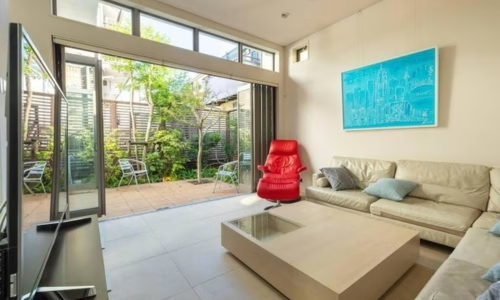
Types of Houses Available for Rent in Tokyo
Tokyo offers more than just apartments, the city has a wide range of house types available for rent, each with its own charm and benefits:
- Detached houses – Standalone homes with no shared walls, perfect for those seeking maximum privacy and a quiet living environment.
- Terraced houses – Residences that share walls with neighboring units, often more affordable and commonly found in residential districts.
- Townhouses – Stylish, multi-level homes in modern developments, ideal for professionals or couples who want a contemporary space.
- Renovated traditional houses (kominka) – Older Japanese homes full of character, often updated with modern amenities while retaining original features like wooden beams and tatami rooms.
Each option suits different needs, whether you’re a family needing space, a couple looking for comfort, or an expat wanting a long-term home with cultural charm.
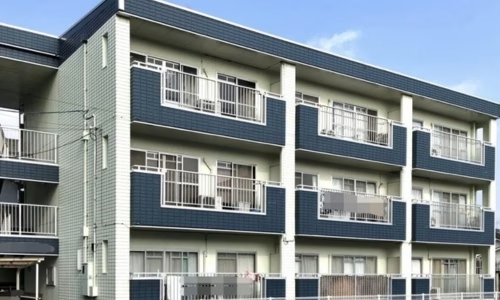
Best Neighborhoods in Tokyo to Rent a House
Tokyo is a city of diverse neighborhoods, each offering its own unique lifestyle, atmosphere, and convenience. Depending on your priorities, whether it’s access to nature, good schools, vibrant culture, or affordable rent, there’s a perfect area for everyone:
- Setagaya – A spacious, residential ward known for its peaceful streets, abundant greenery, and excellent schools. It’s especially popular with families and long-term residents looking for a suburban feel within city limits.
- Tokyo Sangenjaya – A stylish, up-and-coming district located near Shibuya. Sangenjaya blends a relaxed, local vibe with a lively dining and nightlife scene, making it ideal for young professionals or couples seeking balance.
- Tokyo Shinagawa – A strategic hub for commuters, Shinagawa offers quick access to the Shinkansen and major train lines. It’s a convenient area for those who travel often or work in central Tokyo and beyond.
- Kichijoji – Frequently ranked among the most desirable places to live in Tokyo, Kichijoji combines urban convenience with access to nature, including the beloved Inokashira Park. A great choice for anyone looking for a vibrant yet livable neighborhood.
- Suginami & Nerima – Located in Tokyo’s western suburbs, these districts provide larger living spaces, quieter surroundings, and more affordable housing. They are ideal for families, remote workers, or anyone seeking a slower pace without leaving the city.
How Much Does It Cost to Rent a House in Tokyo?
Rental prices for houses in Tokyo can vary significantly depending on the neighborhood, house size, and proximity to train stations or city centers. Below is a general guide to monthly rental rates based on location:
- Central Tokyo (Minato, Shibuya, Chiyoda) – ¥300,000 to ¥800,000/month
These high-demand areas are popular with professionals and expats due to their convenience, modern housing, and proximity to major business districts. - Mid-range districts (Setagaya, Meguro, Shinagawa) – ¥180,000 to ¥400,000/month
These neighborhoods offer a good balance between accessibility and livability, making them ideal for families and long-term residents. - Outer areas and suburbs (Suginami, Nerima, Edogawa) – ¥100,000 to ¥250,000/month
These locations provide more space and a quieter environment at more affordable prices, perfect for families, remote workers, or those on a tighter budget.
When compared to the Tokyo salary average, which typically ranges between ¥5,000,000 and ¥6,000,000 per year (approximately ¥400,000–¥500,000/month before tax), these rental costs are generally manageable for individuals with a stable income, especially households that share living expenses or receive employer housing support.
If you’re considering a long-term stay or moving with family, renting a house in Tokyo can offer excellent value, especially when compared to similarly priced apartments with far less space.
Things to Consider Before Renting a House in Tokyo
Before committing to a lease, it’s important to evaluate a few essential factors to ensure the house aligns with your lifestyle, budget, and daily routine. These factors can guide you toward a smarter rental choice:
- Floor plan and space – Consider how many rooms you truly need. For couples or small families, a 2LDK (2 bedrooms, living, dining, kitchen) might be enough, while larger households may need a 3LDK or 4LDK for added comfort and privacy.
- Parking availability – If you own a car or plan to rent one, make sure the property includes a designated parking space, as street parking is often limited and expensive in Tokyo.
- Pet policies – Not all houses allow animals, so if you’re bringing a dog or cat, confirm that the property is pet-friendly and whether additional deposits or restrictions apply.
- Proximity to public transportation – Being close to a train station is crucial in Tokyo. Look for homes within walking distance of major lines, such as Shinagawa Station (great for Shinkansen access) or Sangenjaya Station (convenient for commuting to Shibuya).
- House condition and style – Decide whether you prefer a modern renovated home with updated features, or if you’re drawn to the charm of older, traditional Japanese architecture with tatami rooms and sliding doors.
- Overall location and commute – Choose a neighborhood that matches your lifestyle, whether that means quick access to the city center, good schools for children, or a quieter pace in the suburbs.
Taking time to carefully review these aspects can help you avoid surprises later and make your renting experience in Tokyo as smooth and satisfying as possible.
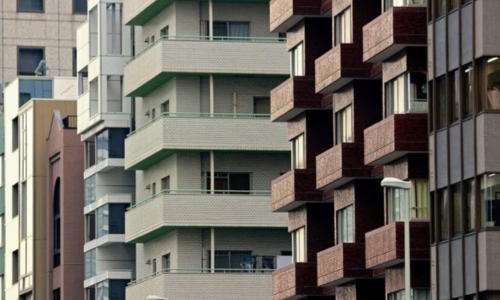
Where to Find Houses for Rent in Tokyo
Finding the right rental house in Tokyo is much easier when you know where to look. Fortunately, there are several reliable ways to begin your search, whether you’re already in Japan or planning from abroad:
- Online rental platforms – Websites such as Suumo, Homes, and Realestate.co.jp list thousands of available properties across Tokyo. These platforms let you filter by area, price, house type, size, and features, making your search more efficient.
- Real estate agents – Many agencies, especially those in expat-heavy neighborhoods, offer bilingual services and specialize in assisting foreigners. Working with a local agent can help you better understand the market, secure viewings, and navigate contracts.
- Community groups and expat boards – Facebook groups, Reddit forums, and local expat networks often share private listings, subleases, and direct owner rentals. These can sometimes help you avoid agency fees or discover hidden gems not listed on mainstream websites.
Important Rental Terms in Japan
As you explore listings, you’ll likely encounter some Japanese rental terms that are unfamiliar. Understanding these terms will help you avoid unexpected expenses or misunderstandings:
- Reikin (礼金) – Often translated as “key money,” this is a non-refundable payment made to the landlord as a gesture of thanks. Expect to pay roughly one or two months’ rent for this fee.
- Shikikin (敷金) – A security deposit held by the landlord to cover potential damage or unpaid rent. Depending on the agreement, some or all of it may be returned when you move out.
- Kanri-hi (管理費) – A monthly maintenance fee for common areas or shared facilities (common in apartment complexes, but may also apply to certain houses).
Whether you’re searching for a Tokyo renting apartment or looking specifically for houses for rent in Tokyo, having a basic grasp of these terms will help you make informed decisions and avoid hidden costs during the rental process.
Rental Process for Foreigners
Renting a home in Tokyo can feel unfamiliar at first, especially for foreigners. However, with some basic knowledge and the right preparation, the process becomes much more manageable. Japan’s rental system is structured, and knowing what’s expected will help you approach it confidently.
Documents You’ll Need
Landlords typically ask for several official documents. These include your residence card, a valid visa, and proof of income. Employed renters may be asked for pay stubs or a letter from their employer. Students, on the other hand, should provide proof of enrollment and a financial guarantor.
Understanding the Guarantor System
Many landlords in Japan require a guarantor (hoshōnin). This is someone who agrees to pay your rent if you can’t. If you don’t have a guarantor in Japan, don’t worry—real estate agencies often offer guarantor company services for an extra fee. This option is commonly used by foreigners.
Rental Contracts and Lease Terms
Most rental agreements in Tokyo last one to two years. These leases are renewable, but a renewal fee may apply, usually equivalent to one month’s rent. Make sure you understand the terms before signing, as some properties may include automatic renewals or specific move-out notices.
Initial Costs to Expect
Moving into a Tokyo apartment requires several upfront payments. These typically include:
- Security deposit (shikikin): Refundable if there’s no damage
- Key money (reikin): A non-refundable gift to the landlord
- Agency commission: Usually one month’s rent
- First month’s rent: Paid before move-in
Altogether, initial costs often total three to six months’ rent. Planning ahead financially is essential.
Work with Experienced Agents
Partnering with a real estate agency that specializes in helping foreigners can make the process smoother. Many firms offer bilingual service, assist with paperwork, explain rental terms, and arrange property viewings. This support is especially valuable for non-Japanese speakers.
Tips for Finding the Right House in Tokyo
Once you’ve narrowed down your options, it’s important to take a few practical steps to ensure you choose the right property. Renting a house in Tokyo is a major commitment, so a thoughtful approach can help you avoid costly mistakes and find a place that truly fits your lifestyle. Here are some helpful tips:
- Always visit the property in person – No matter how good a house looks online, it’s essential to schedule an in-person viewing before signing anything. Photos can be outdated or misleading, and a physical visit allows you to assess the actual condition of the home and the surrounding neighborhood.
- Pay attention to daily living conditions – During the viewing, check for noise levels, natural light, ventilation, and any signs of damage or poor maintenance. Is the house close to a busy road or train tracks? Check if the rooms are bright during the day. Minor details often play a major role in your overall living experience.
- Review the lease carefully – Make sure your rental agreement includes clear terms about lease renewal, early termination, and who is responsible for repairs or maintenance. Don’t hesitate to ask your agent to explain anything unclear, especially if the contract is in Japanese.
- Prioritize location – A house may seem perfect, but if it’s far from a train station, grocery store, or school, daily life can become inconvenient. Look for properties within walking distance of essential services and train lines, especially if you’re commuting to work or school. Areas like Shinagawa or Sangenjaya offer a good balance between accessibility and livability.
Being thorough in your search helps you avoid surprises and ensures your new home in Tokyo supports your lifestyle, whether you’re living alone, with family, or sharing with roommates.
What It’s Like Living in a Rented House in Tokyo
Choosing to rent a house in Tokyo offers a different lifestyle compared to living in a typical apartment. With more space and greater independence, many residents find house living to be quieter, more comfortable, and better suited for families or those planning to stay long-term.
Some of the biggest perks include having a small private garden, a dedicated parking spot, and fewer shared walls, which means less concern about noisy neighbors or building rules. You’ll also enjoy the freedom to personalize your living space more than you typically could in a multi-unit apartment complex.
However, living in a house also comes with a few extra responsibilities:
- Regular upkeep and cleaning – With a larger space often comes more maintenance. As the tenant, you’re usually responsible for basic upkeep both inside and outside the property, including cleaning, yard care, and reporting any repairs needed.
- Respecting local customs – Japanese neighborhoods are known for their quiet, orderly atmosphere. It’s important to follow local etiquette, such as not making loud noise at night, properly sorting trash, and maintaining a tidy exterior.
- Understanding your lease obligations – Make sure you’re familiar with your contract’s terms, especially those regarding repairs, property damage, and early termination. Some agreements may require you to return the property in its original condition or cover certain repair costs when moving out.
Living in a house gives you more freedom, privacy, and space to enjoy your time in Tokyo, but it also requires a bit more care and responsibility. If you’re prepared for both, it can be an incredibly rewarding way to experience life in Japan.
Conclusion
Houses for rent in Tokyo Japan offer more space, privacy, and comfort, ideal for families, pet owners, or professionals seeking a quieter lifestyle in the city.
Though apartments are more common, choosing a house can give you room to grow, peaceful surroundings, and a stronger sense of home, especially for long-term Tokyo residents.

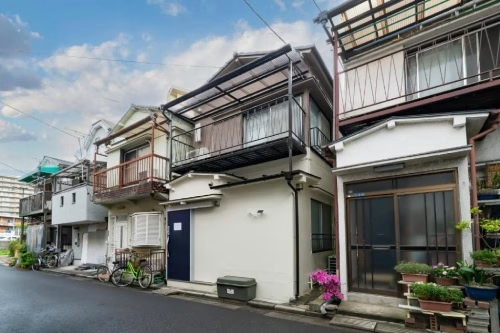

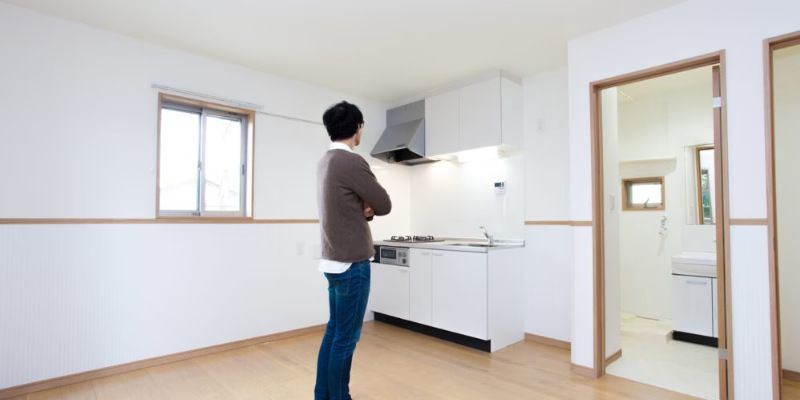
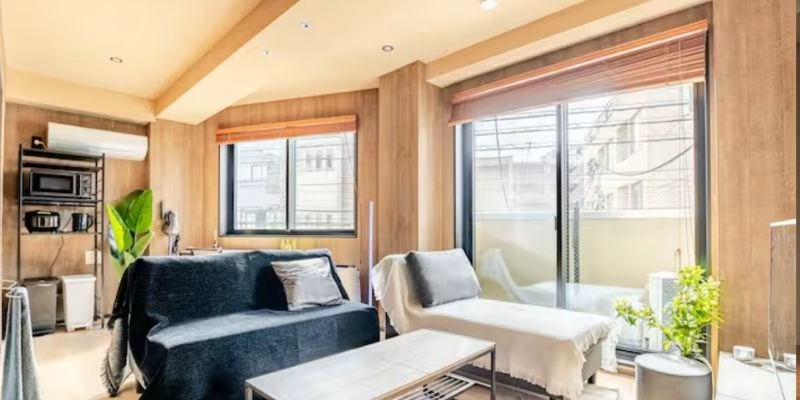

Leave a Reply